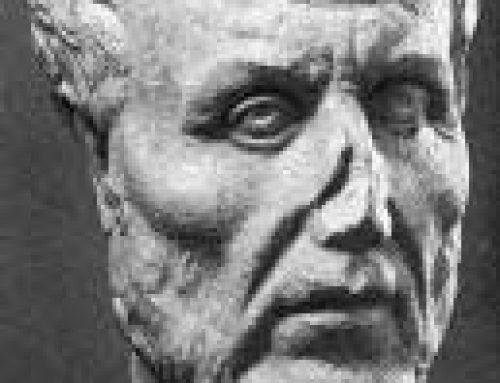
This is supposed to be a bust of Pyrrhon, the founder of Skeptic philosophy
We don’t know as much as we might like to about the activities of Plato‘s Academy after the death of Aristotle. But between about 300 and 100 BC– almost up to the birth of Jesus – the Academy became known as the center of the Skeptics.
The Skeptics were a group of philosophers. Their main idea was that we can’t really know anything for certain about the world around us, or about ourselves. Therefore, we can’t really ever know what is right or wrong, either. Some of these ideas came from Socrates. Socrates also thought that the wisest man is the one who realizes that he doesn’t know anything. But Skepticism really began with Pyrrhon (about 365-270 BC). Then Pyrrhon’s student Timon kept it going (about 320-230 BC).
You might say, if you can’t really know anything, why bother studying philosophy at all? But the Skeptics said the real point was not to worry about things they couldn’t know or didn’t have enough information to decide. Instead, people should relax and let go. If you couldn’t know, then there wasn’t any point in worrying about it. You should leave it in the hands of the gods.
Some people think that this Skeptic attitude might have been influenced by Indian philosophy. This is certainly possible, because Alexander the Great went to India around this time. And we know that Alexander and his followers spoke to many Indian philosophers there. According to some Greek historians, Pyrrhon actually travelled to India with Alexander.
Pyrrhon himself did not write down any of his ideas, so we don’t know as much about the Skeptics as we would like to. We do know that most people forgot about Skepticism after about 100 years, so it wasn’t as successful a philosophy as Stoicism or Epicureanism.
Bibliography and further reading about Skeptic philosophy:




